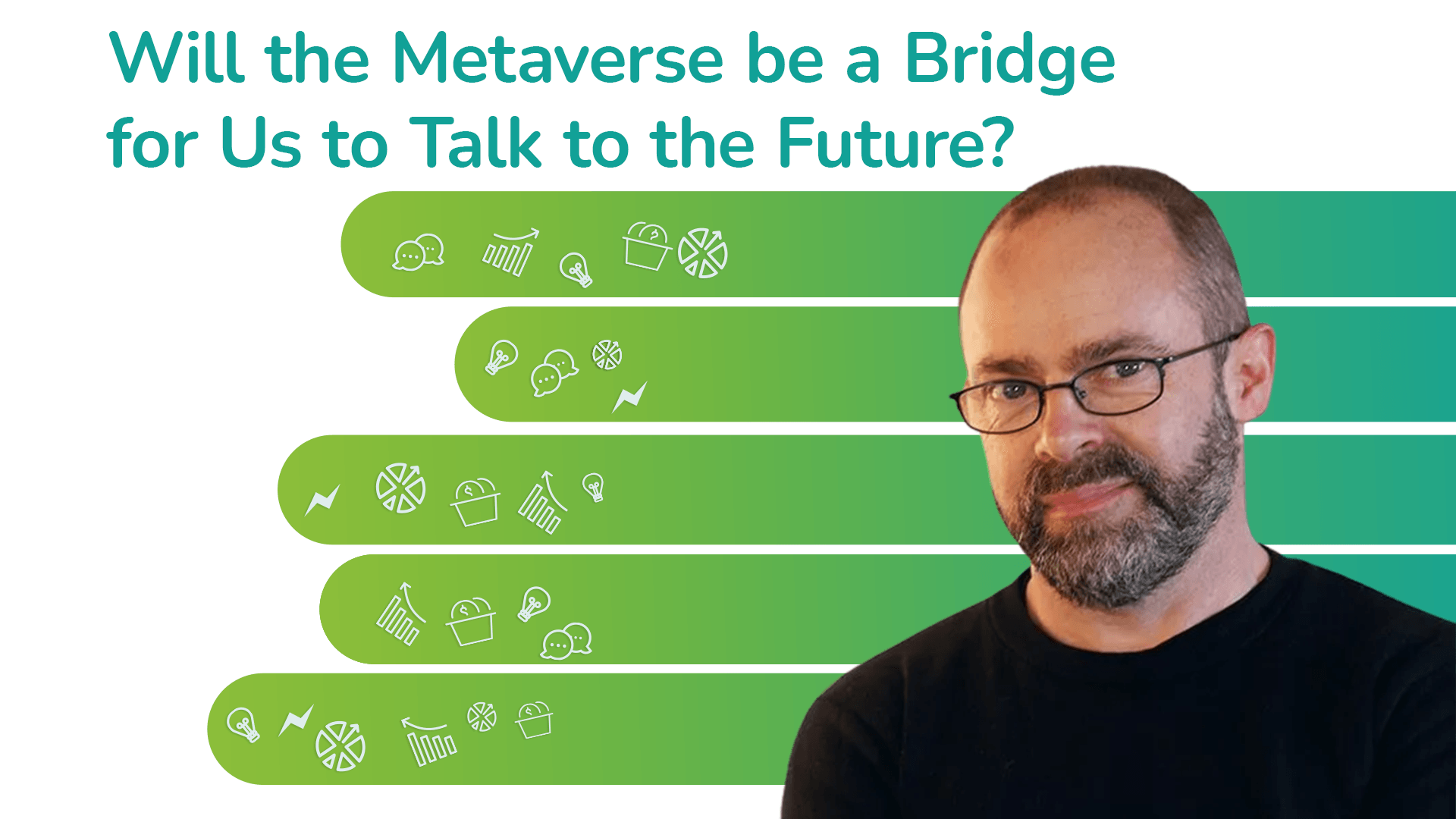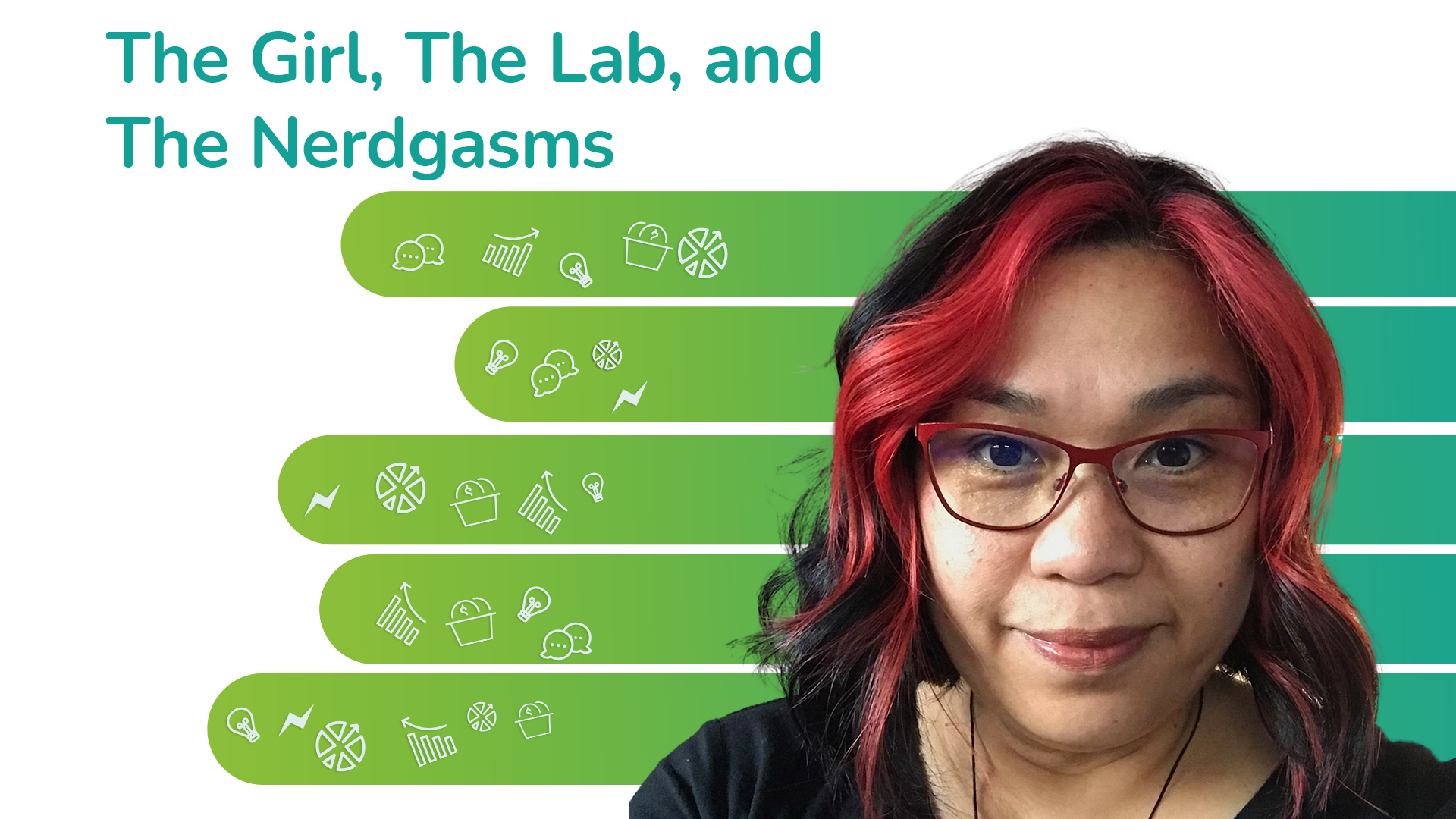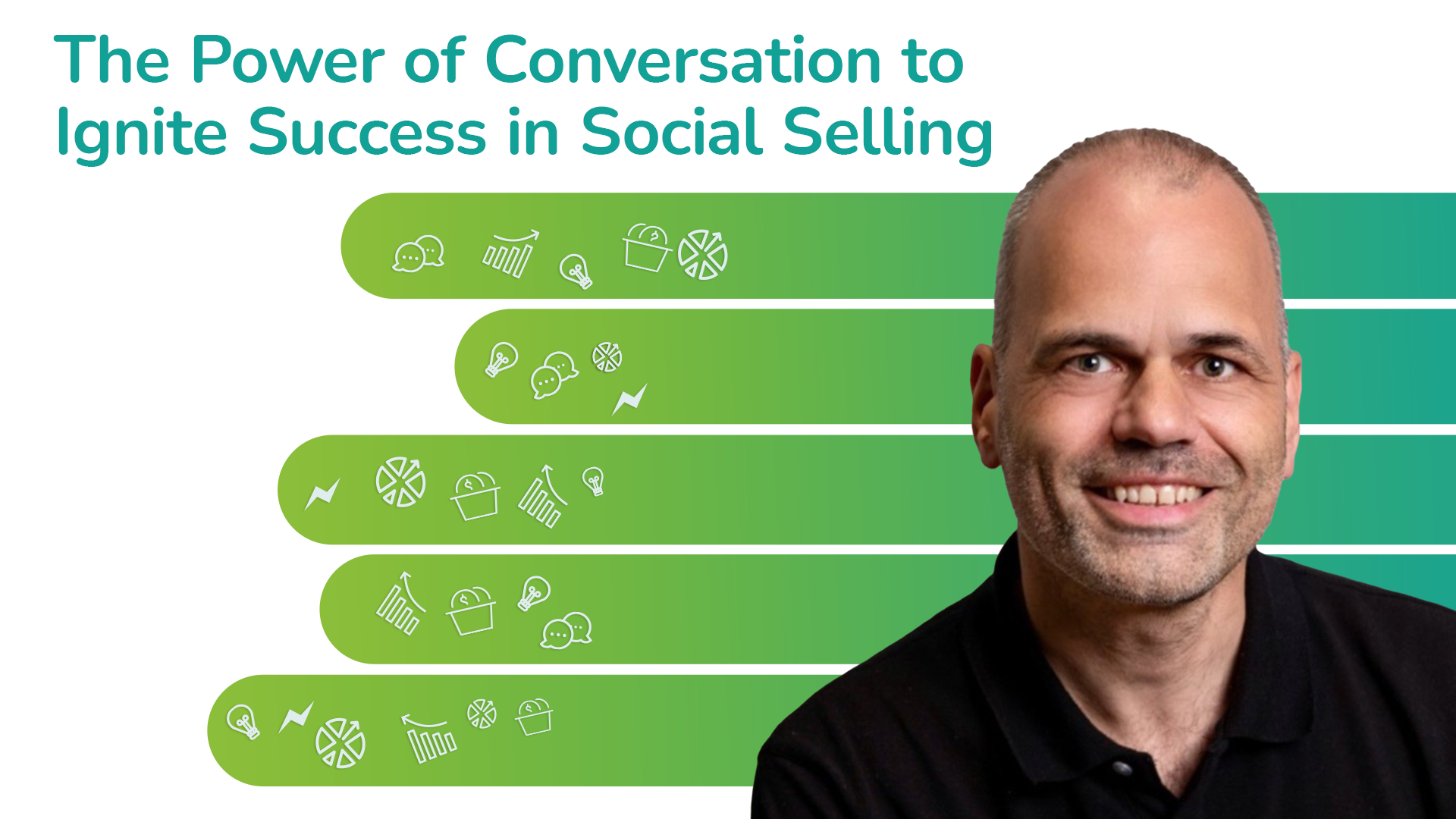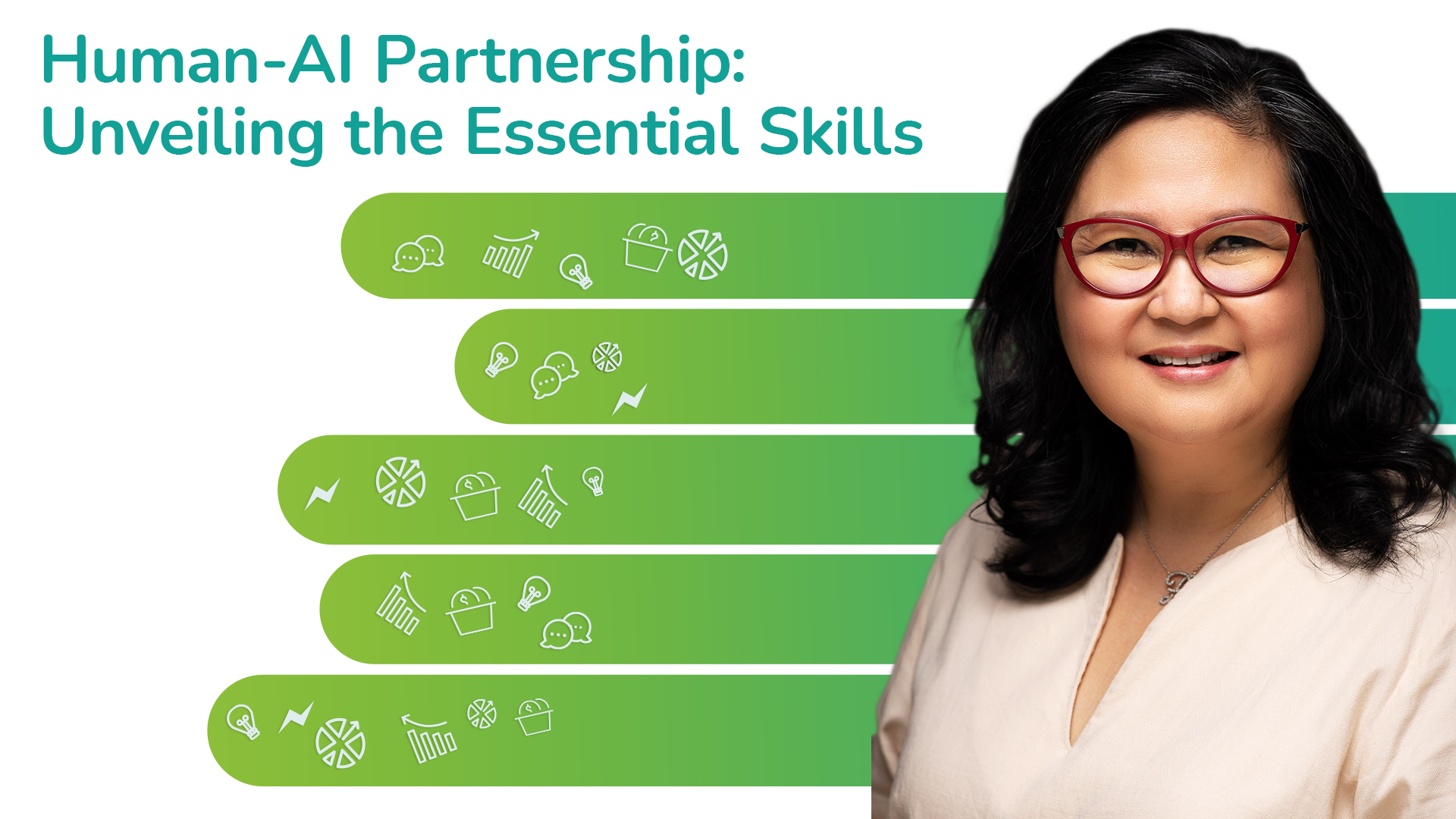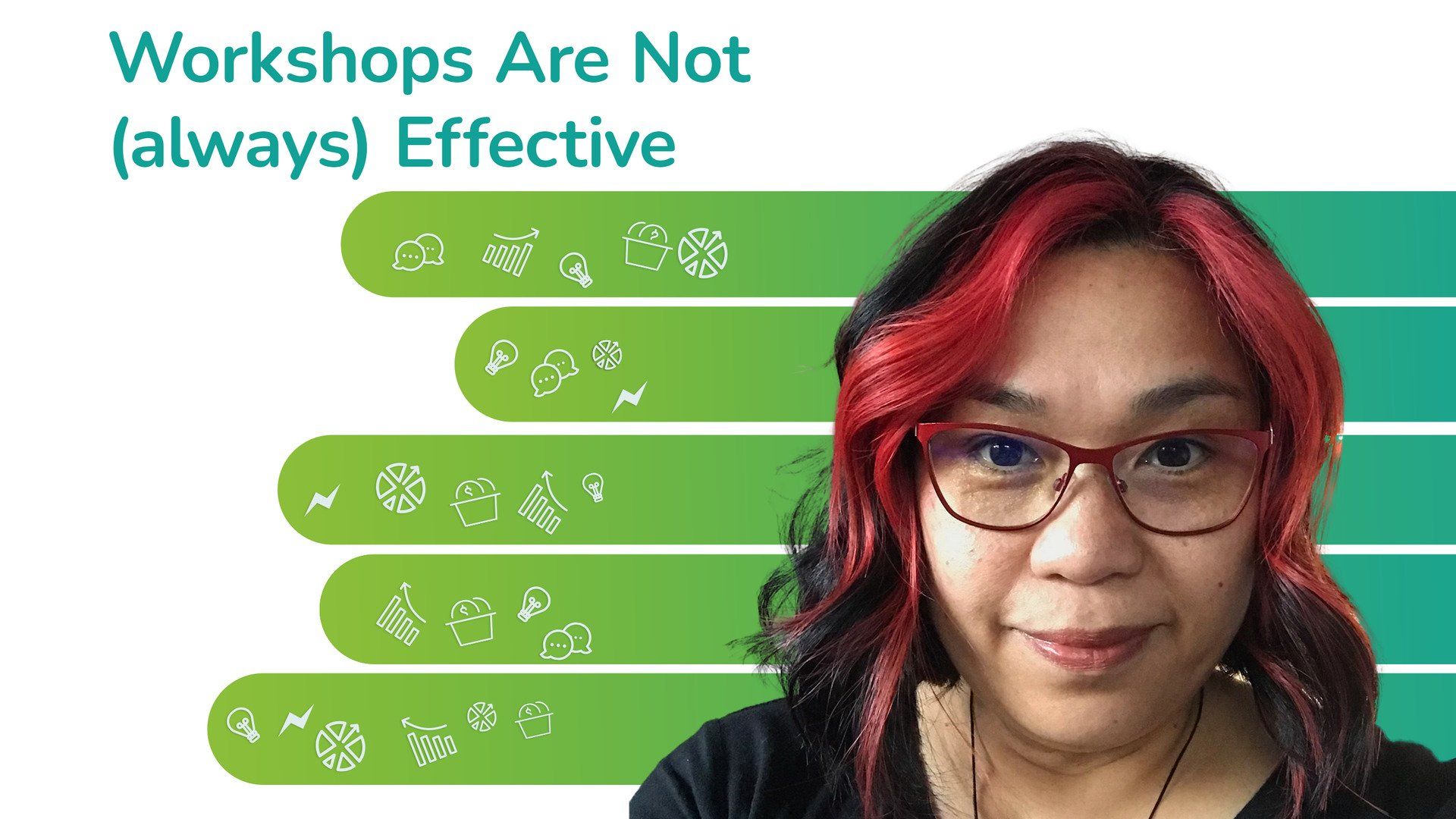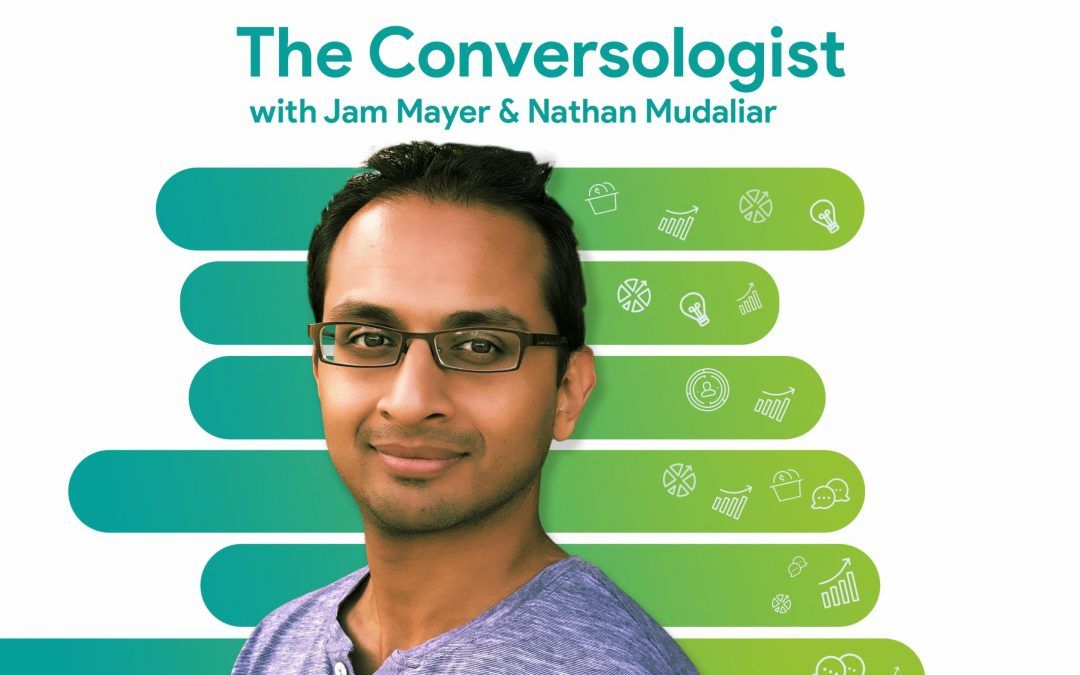
Season 1 Episode 14 | 26 minutes
Clubhouse is the new player in social media. An invitation-only, audio-only app, where members address the room “live” from a virtual stage, Clubhouse sounds good, at least in theory. Forums, discussions groups, virtual talks and even concerts. In this episode of The Conversologist, Jam Mayer and Rew Shearer chew the fat on audio’s pros and cons, the culture shift of social media, and first impressions of a new social media app.
This conversation was unscripted and spontaneous, top-level thoughts only - we’d love to get your thoughts, as we may revisit the Clubhouse app as a topic.
Hosts & Guests
Jam Mayer
Rew Shearer
Resources
Clubhouse App
@jammayer
@rewshearer
Episode Conversation
Topics that were discussed:
Episode Transcript
Introduction
[00:00:00.530] – Jam
What’s everyone talking about? Pick a room and find out! Clubhouse is the new app on the block. How will it affect the human experience in digital media? And will it endure the culture shift of social media? We talk about algorithms, hate speech, keyboard warriors, and the civility of voice.
[00:00:23.840] – Jam
Welcome to the Conversologist podcast, where we talk about the art and science of conversation in the digital space. We know that technology can be a powerful enabler, but communication and emotional connection still need to be at the core. I’m your host, Jam Mayer, and I invite you to converse with us.
[00:00:45.540] – Jam
This is Episode 14: Clubhouse — The Next Big Thing in Audiocasting. First impressions? This conversation is a top-level thoughts of fellow podcaster, Rew Shearer, and myself about the Clubhouse app and its relevance to the human experience as a new player in the digital space.
[00:01:08.220] – Rew
The topic of this podcast, I guess, is almost preaching to the converted because we know that whoever joins this podcast is already convinced that audio is a great means of communication, right? And we’re essentially talking about the evolution of audiocasting. And that happens to be Clubhouse, which is a new app. And Clubhouse, can you just outline how Clubhouse works, what it is, Jam?
What is Clubhouse?
[00:01:36.650] – Jam
Clubhouse — It is an audio-based, well, next best thing social media platform or app. And how it works is, well, this is by invite only, by the way. So you can’t just, well, you can just create an account, and a username is reserved for you, but you can’t really get into the app until someone lets you in, so to speak, by sending you an invite. Or if someone actually invites you into the app, then you get in.
[00:02:11.600] – Jam
So the first one I said is sort of like the back door or side door, some people call it, because you’re just waiting for someone to get a notification that, hey, a friend of yours actually is in Clubhouse, is on the waiting list. And if they let you in, then you’re in. I got mine just a few hours after I signed up, which I am very, very grateful.
[00:02:38.600] – Rew
And then once you got in, once you got in…you’re like that kid in the candy store, weren’t you, basically?
[00:02:45.720] – Jam
Kind of. Yes. The new shiny toy syndrome.
[00:02:49.050] – Rew
That sums it up. What did you love about it?
Blab, Algorithm and Talk Back
[00:02:51.370] – Jam
It was similar to Blab. And for those who are listening, you may not know. But Blab 2016, I believe. It was great because it was one of the first live-streaming apps where in you can, just similar to Clubhouse, but it’s video like your zoom call: you come in, you look at the feed, you look for topics or rooms, and then you join in the conversation, or you create your own room.
[00:03:18.170] – Jam
But it’s all video. So in Clubhouse it’s the same thing, but it’s all audio. So it was familiar, but not familiar coz I’m a visual person, which is ironic, by the way. And we’ve had conversations about this.
[00:03:33.850] – Rew
For a visual person, you certainly can talk.
[00:03:36.800] – Jam
Yes, that’s the thing. Anyway, but yes, like a kid inside a candy store. In my case, like a kid in the library. I was just going through the normal setup profile. So, the way the algorithm works or the feed is you will only see rooms from the people you follow.
[00:03:58.180] – Jam
So if you’re not following anyone, you’re not going to see anything. At least, that’s how I understand coz when I signed up, I had to, at least, follow a few before I could get started.
[00:04:08.970] – Rew
And to kind of sum up the way that the rooms work, it’s sort of like Talk Back, but the microphone gets passed around. You have one person who is the host or the moderator or both, and then it gets passed to people who have queued up to have their say. Is that right?
[00:04:25.260] – Jam
Yeah. I mean, there is this so-called stage. So the moderator/host can bring people up on stage. And when that happens, you have the ability to turn on your mic at any time.
[00:04:41.080] – Jam
So you have to be a really good moderator ‘coz I’ve been into rooms where in there are about five, more than five people, and they start talking on top of each other because they’re on stage, at any point they can cut someone off. So it’s critical that you’re a good moderator.
[00:04:59.530] – Rew
Right. So as a moderator, you can actually kick somebody off the stage.
[00:05:03.260] – Jam
Yes, you can as well, just in case someone starts to do a monologue.
Radio and Social Media Combined
[00:05:08.240] – Rew
That was a great sum up of what the app is. And I absolutely love it. I think the way that it works, the way the discussions in real-time, the fact that they are moderated like that, I think it’s really promising for conversations in the digital space. And that’s one of our buzz phrases. I’m going to use that. It’s conversations in the digital space. But I’m excited because I think this is an evolution of something that has actually taken quite a while to come along.
[00:05:39.130] – Rew
If you look at radio as a medium, it started off as a one-way broadcast where important people who had a microphone could broadcast to the rest of the world. Then along came TalkBack. And that was, kind of, the way Clubhouse works, and that you had a radio channel, you had a host or moderator, and people could call in and have their say. I mean, most TalkBack stations would have a 10-second delay on the feed or the broadcast, and they could always dump something if somebody started swearing or saying something inappropriate.
[00:06:12.500] – Rew
But that’s essentially, it was what Clubhouse is. The difference with Clubhouse, and this is what excites me, is that it’s taken what was a platform, that was owned by a radio station corporation, and it’s put it in to the people’s hands. And so, it’s the best of both worlds, in my view, because it’s both radio, which is a fantastic medium in terms of having conversations, and I’ll get into that shortly. But it’s also social media where everybody has a voice if they choose to.
[00:06:45.590] – Jam
I guess that’s also the reason why it has a huge appeal. Even though I’m a visual person, I actually enjoyed my short stint when I was, well, a talk show host, pretty much. Here we go. It’s like, oh, I get to talk and listen to other people and kind of interview them and so on.
Audio conversations vs comment threads
[00:07:06.460] – Rew
So what I see as one of the big advantages of a platform like Clubhouse, where people have to speak is speech. It’s the fact that we are talking as opposed to writing. Now, you may take a different view, but it’s my belief that there is an element of the spoken word that is lost in comment sections and forums of the written word, you know. We love to get behind our keyboards and belt out a message, but a lot is lost, and most of that is tone.
[00:07:41.630] – Rew
It’s the nuance of how something is said and the emphasis we put behind it, and the civility that comes from actually talking to somebody who is going to respond to you in their own time. And I think, in terms of having a constructive conversation, a lot of the constructive part completely goes out the window. When you find yourself in a comment thread, it comes down to scoring points off each other, calling each other names, and you know, trashing somebody simply because of one opinion that they hold or one side of the spectrum that they happen to be on.
[00:08:18.950] – Rew
It comes down to name-calling and idea bashing and conflict, as opposed to when you talk to somebody and you know that they’re going to talk back to you, and you have to maintain this kind of civility. I believe that you actually have more constructive conversations when you’re doing them verbally.
[00:08:35.080] – Jam
No, I agree, ninety percent or eighty percent. And this is coming from a few things. I mean, a few factors like, yes, I agree that in terms of tone, I mean, it’s quite different when you are saying it verbally.
[00:08:53.220] – Jam
And yes, correct. You are a little bit behaved. Because in real-time you are saying something and it really depends, I guess, on the personality, ‘coz that’s where I kind of disagree. Because I’m the type wherein I tend to behave a little bit more. I don’t know if that’s the right phrase to use, but behave a little bit more when I’m writing and comment on something because it is going to be there forever until it’s deleted.
So in my head, the reason I want to behave more, it’s just that if I say this and yes, I’d start name-calling, or you know, like what trolls do, etc., it’s gonna be in there forever, as I’ve just said, compared to live – like Clubhouse.
Understanding Others Nuance and Intent
[00:09:42.050] – Rew
I don’t think it’s just a case of people being more behaved in real-time. I think also the message is clearer, and the intent is clearer than when it’s just the written word, and people tend to see what they want to see. And more importantly, and this is something that I was explaining to my daughter after she got, when her mind, she got harassed on TikTok. And when I looked at it, I didn’t see harassment. I saw somebody actually teasing her, which is quite different.
[00:10:09.160] – Rew
But if you’re just reading the words, then your frame of mind is going to colour your interpretation of what they have written. If you hear them say it, you’re far less likely to make that same mistake. And this is the same reason why I’ve had blow-up arguments through email with work colleagues. And when I pick up the phone, everything’s resolved in 30 seconds, you know. Tone of voice and the way in which people say something makes all the difference. And I think that’s what audio brings to the table that comment sections and written forums don’t.
[00:10:43.950] – Jam
I guess it’s well, again, I kind of disagree. I think it’s the same. It depends on the personality and the person. So I was just at, well, in Clubhouse just an hour ago.
[00:10:57.250] – Jam
And it’s interesting coz he was a podcaster. He had a podcast and he just had, no judgment here or anything, it’s just the way he sounds. It’s like he sounds really bored. And it’s monotonous. And you’re quite different because you’re more animated. You’re, you know, you’re a copywriter, and you record ads, so you are trained. Do you know what I mean, so you’re comfortable, and you think that, yes, you can articulate through tone and inflections, etc.
[00:11:34.380] – Jam
So you know what the emotion is, right? But for someone like him, who just talked the same tone, the same thing. But if you just really listen closely, what he’s saying, means a lot. And he was serious, or he was, there was a point that his peers in the room thought it was funny. And to me, it was like, uh, what was funny about that? Am I making sense here? So I don’t know. Maybe this is coming from someone who is trained, has a trained ear, I guess. So for me, I’m more comfortable with the written word.
[00:12:17.870] – Rew
Yeah, I totally understand what you’re saying. Uhm and can I just say that I don’t think that a one-way communication is necessarily better when it’s spoken. In fact, I think it probably isn’t. I think, if you have a complex, or technical, or detailed idea to communicate, the written word is fantastic. And I don’t think anything can replace that. But in terms of conversations, I think voice is potentially a lot more constructive because of the dynamics and of the realness of interaction with people, and the fact that you get a response in a way that you don’t if you’re just writing your comment.
Emojis and Misinterpreting Emotions
[00:13:02.210] – Jam
Just as a sidebar like, well, emojis. I mean, that’s why emojis exist is that is how you tell people that it is a joke. I don’t know. Sarcasm is hard when it comes to discussion forums or comments or written word because I think that’s what happened to your daughter. I think it was more…
[00:13:22.290] – Rew
I agree.
[00:13:22.830] – Jam
Yeah. It was more sarcasm, or it was just a joke. And I know your daughter is also good at this. And some people would think, hang on, if they weren’t in the right frame of mind or they’re just not in the right mood, then it doesn’t really matter whether it was a joke or not. So, see, that’s another thing. So, I mean, I’m not saying I disagree with you a hundred percent. It’s just that I still think it is dependent on who the speaker is. There you go.
[00:13:53.660] – Rew
Yes, it is. And you’re quite right. I mean, I would argue that emojis are so often used dishonestly, particularly when discussions are getting nasty. People will use things like LMAO, you know, laugh my ass off, and having just said something incredibly cruel. And I’m pretty sure they weren’t laughing. I’m pretty sure they were thumbing out that message on their phone with teeth clenched and the veins inside of my neck standing out. There was nothing light-hearted about it.
[00:14:25.320] – Rew
I think when you have to speak your thoughts, it’s a lot harder to hide the true intent. You say actually somebody might be saying something quite vicious in a complete monotone. Possible. But I think when you get into a space where you’re actually used to talking, and you are relaxed. And so given a bit of time on that like Clubhouse, I think that level of honesty will start to come through. And I still think it will make for better conversations even if it’s just written.
[00:14:57.260] – Jam
It’s good that you mentioned uhm honesty because I’ve read a few articles around Clubhouse and their experiences and even some rooms that talk about Clubhouse. Believe it or not, there’s like usually when I’m in there, there are about three to five rooms, just all about Clubhouse. And it’s hundreds of people are in there for obvious reasons. It’s a very new app everyone’s learning and experiencing it. However, everyone’s saying this is a great app because there is authenticity. To your point, when you’re comfortable already and when you’re talking and it’s real-time, you can’t really…it’s so hard. If you’re just…grrr, you just want to strangle someone. It’s very hard to cover it up, so to speak, with emojis.
[00:15:44.810] – Rew
Absolutely yes, I agree. I think you can…Somebody can say something that is not in line with what you know they believe, and you can actually hear the truth underneath their voice.
Social Media Culture Shifts
[00:15:55.330] – Jam
One thing I want to mention about or what I’ve experienced in Clubhouse. The most interesting conversation that happened in Clubhouse was all about the app, and how…Because of the changes or the culture shift around social media. Because of the Trump supporters and Trump being banned and removed from social media, Twitter, and so on. Because of what has happened very recently, or if those events, there’s just really major culture shift or uhm how we actually use social media. And a lot of people would like to be on an app that there is freedom of speech. You put it into the hands of the people and they can say anything they want.
[00:16:41.620] – Jam
But once you bring in the algorithm and once they change that because of whether, you know, they want to monetize it, it’s just going to be any other social media app. So what’s the point? What’s the difference? Yes, it’s audio. So? And another person said it has already happened. I don’t know the full story about there’s a room about hate speech, etc., and it is happening. I mean, he also mentioned about what happened to Facebook live. It was a great tool, and all of a sudden, you’ve got the Christchurch shooting.
[00:17:15.610] – Jam
So he thinks it’s like, well, you wait, it’s going to happen faster because it has already happened in other social networks.
[00:17:23.760] – Rew
I understand because the perennial problem of the way social media algorithms work is that they create echo chambers, where an opinion gets reflected back at you and bolstered and boosted and reinforced. It becomes an amplifier rather than the way it should do in any community or society, where it should actually become a sounding board, where bad ideas get quickly shot down not just through yelling, but through reason and logic and compassion and listening and then making counterpoints.
[00:18:01.600] – Rew
And this is the way that democratic society, to an extent, let’s not kid ourselves, there will always be conflicts, and there will always be the fringe outliers. But I think the guy who stands on a soapbox at the corner and starts yelling extreme fascist slogans or whatever is likely to get shouted down by people, or have somebody stand there and have the debate. The arguments go back and forth, and other people see it. And the bad idea tends to get shot down.
On social media where you’ve got the echo chamber effect, what actually happens is more and more and more people congregate to this one voice that just builds the bad seed of an idea until it becomes something like, you know, a mosque shooting in Christchurch.
[00:18:48.940] – Rew
So I can see that, yes, that is going to be a challenge for Clubhouse as much as anything else. I would like to hope that, the fact that people can be in there and discuss things in real-time, that you’re not going to get that amplification effect, but I could be completely wrong on that one.
[00:19:06.710] – Jam
Just uhm as an additional or side note, on a marketing perspective, so to speak, and I’ve started to observe this in a lot of the rooms. As you said, there is that person or maybe a group of people yelling and just wanting to say what they want to say, but not necessarily listening to the audience, right. So it’s just a platform for them to say, hey, yes, let’s have a conversation. But they’re not actually listening.
[00:19:39.270] – Jam
And I’ve seen this in rooms like 10X Your Business or Be a Millionaire. They’re just there because, I’m sorry to say this, selfish, because they have a hidden agenda. Uhm…I’m not saying that’s entirely wrong. I am from marketing, and you’re from advertising. We understand that we need to tell people about our products and services, and we’re marketing our brand, and so on.
Importance of Being a Good Moderator
[00:20:06.890] – Jam
However, another example is just the room I was in. The topic was all about marketing automation and customer experience automation, customer journey. And in my head, oh, great. I want to join in, be part of the conversation. But what happened is these two, three people or the moderators, unfortunately, were just talking endlessly, not even around the topic.
[00:20:35.760] – Jam
And yes, they invited me and other people to the stage, and we were just waiting, and I was waiting patiently to have my say around it. I even have a question around the topic, but it never happened. There was about, what, ten minutes of waiting or so. And I think that’s pretty long. I just left.
[00:20:56.590] – Jam
As an additional note, I’ve noticed that the community club, which is the club that helps people onboard or use Clubhouse. Now the topic is not just about the use of Clubhouse as a newbie, but they’re now moving to becoming a good moderator. Because the room that I was in, the last, they weren’t good moderators because they were just exactly what you said, a person just on top of a platform, yelling and not listening to anyone.
[00:21:29.310] – Rew
And yes, I would like to first off, point out that loud people hogging the conversation is a fact of life. And we’re all going to meet those people as we go, whether it’s at a dinner table or a discussion room.
[00:21:43.060] – Rew
And yes, you’re absolutely right. The moderator is key. And I think that is the element that needs to be in any conversation. I think it’s essential. And that’s one of the things that’s missing from the “likes” of Twitter or from Facebook comments or from any comment section is the moderation. Because when it’s a free for all, it is either the angriest, the loudest, the most persistent, the most vitriolic, who is going to get their share of the voice, and they can get amplified.
[00:22:16.000] – Rew
And you really need a moderator to control the conversation and to make sure that balance is maintained in order for it to be constructive. I think that is the human element in a conversation. I don’t know. You tell me, do you think moderation is ever likely to be managed by AI effectively?
[00:22:35.830] – Jam
By AI? Hmmm.
[00:22:38.410] – Rew
Aha, that’s another podcast.
Audio Fills the Glass
[00:22:40.030] – Rew
Right, but I think these have been some interesting things we’ve talked about. I think the last thing that I want to say, and it’s a very brief one, is just, you know, that parable of the glass that’s full of stones and the glass is full. But then you can pour in a whole bunch of sand, and it goes up to the brim, and oh the glass is full. And then, all of a sudden, you can also tip in some water. And that goes in there as well. You heard that adage?
[00:23:07.320] – Rew
Audio in our lives, I think, is the water in the glass that’s already full of stones and sand. We are so busy with media consumption, we are so busy with email, we are so busy with social media on our phones. Our lives are basically packed from dawn till dusk with a bombardment of information. And it’s like there was no more room for us to consume more.
[00:23:32.230] – Rew
And then along comes audio. And it can fill those gaps, and it can filter in, and we can use it while we’re doing other things. You can’t, I know. But we can use it while we’re doing other things, and it just sits comfortably in those gaps. So I think it’s also a wonderfully versatile and resilient social media because it can filter into parts of our lives that are otherwise not dominated by the written word. So last words, Clubhouse.
Why We Love Clubhouse
[00:24:04.340] – Jam
I love it. It’s time-consuming, but I love it for so many reasons. I love it because I get the chance to say what is in my mind. And I love to talk, as you know. And it’s a great platform. It’s real-time, as we’ve said, authenticity. It’s..it’s..I’m very observant. And I enjoy, kind of, listening to people.
[00:24:34.810] – Rew
For me, who when I was a boy, would just lie in bed listening to TalkBack radio until I fell asleep, this is my happy place. I love to listen to people talking, and I love to form my own quiet opinions. And I don’t necessarily have to say anything, but I like to listen and to learn.
Closing
[00:24:53.800] – Jam
That’s it for Episode 14 of the Conversologist podcast.
[00:24:58.120] – Jam
If you have your own thoughts on the Clubhouse app, we’d love to hear them. Comments, questions, or feedback. If you’re on Anchor.FM, you can leave us a voice message.
[00:25:08.240] – Jam
If you found us on social or your usual podcast app, drop a comment, join the conversation, or you can visit our page at theconversologist.show and tell us what you think there. Better yet, look us up at Clubhouse, and we can have a live conversation. Just search for our names, Jam Mayer or Rew Shearer, and we can definitely open up a room to discuss more about this app or anything else under the sun.
[00:25:36.960] – Jam
Music bed was composed by Carlo Vergara, and this podcast was edited together by my podcast dude, first in his own Google search, Rew Shearer.
[00:25:47.960] – Jam
‘Til the next episode. Thanks for listening, and remember to keep the conversation going.
Blooper: [00:25:59.160] – Jam
Or hey, follow us, follow me, Rew Shearer. Aahh! [laughter]

